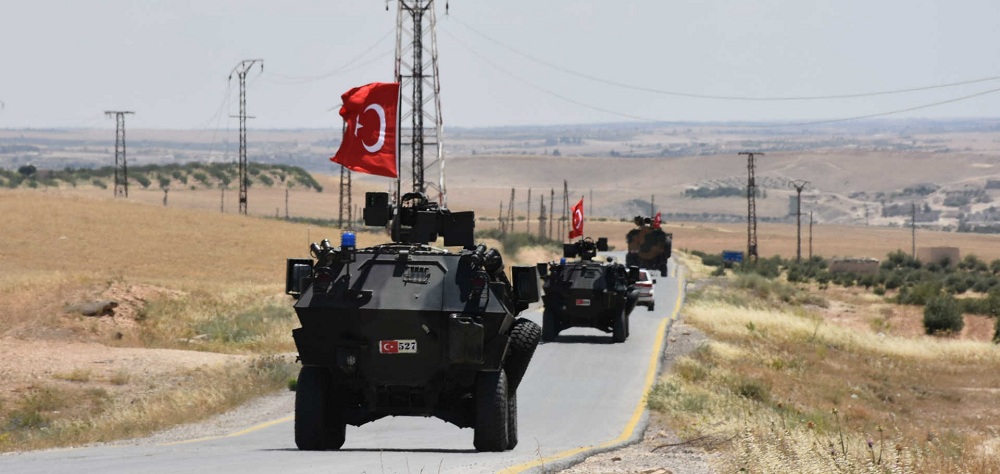Alwaght- In an emergency session on January 5, the Iraqi parliament approved a bill to expel foreign forces from the country. The media and political circles focused on US troops more than any other country. The developments after the assassination of Abu Mahdi al-Muhandis, deputy head of Iraq's Popular Mobilization Forces (PMF as well as )the top Iranian General Qassem Soleimani near Baghdad International airport pushed the attention to the direction that it can be said that the important aspects of the Iraqi parliament bill were ignored as all of the attention went to the US. The notable point is that it is not only the Americans who have an occupying and illegal presence in Iraq. Rather, the Iraqi lawmakers’ bill also includes other NATO states under the so-called “anti-ISIS coalition”.
Meanwhile, Turkey is one of the key players whose forces have a massive and influential presence in Iraq and is refusing to leave the Arab country just against the international laws and repeated calls by the Iraqi leaders for withdrawal.
Turkish forces present in Iraq according to 1982 agreement
The Turkish military presence in Iraq should be tracked to a 1982 deal between Ankara and Baghdad allowing the Turkish troops to be stationed in parts of Iraq. This time was when the Kurdistan Workers’ Party (PKK), founded by Abdullah Ocalan, started its life and launched its military operations against the Turkish government. At the time, the Turkish military which had just seized the power in a coup sealed a deal with Saddam Hussein of Iraq that allowed Turkey to move 20 kilometers into the Iraqi territories to fight the terrorist factions. The Turkish forces, mainly in the 1990s, entered Iraq for operations several times. They in 1996 and 1997 set up a couple of military bases in Dhuok province north of the country. Reports put the number of military and intelligence bases in areas under control of the Kurdistan Regional Government (KRG) and central Iraqi government at 19. Some 15 are for combat purposes and 4 others for intelligence gathering. About 3,000 Turkish troops are currently stationed in Iraq, the reports add.
ISIS rise and golden opportunity to enter Iraq
The emergence of ISIS terrorist group like many political developments marked a turning point for the Turkish forces’ presence in Iraq. After Mosul fell to ISIS in 2014, the Turkish forces, at the request of Masoud Barzani of the KRG and with the green light of Baghdad, were deployed to the Bashiqa region just 30 kilometers northeast of Mosul. They established a military base to train the Iraqi forces there.
The Turkish military deployment was not limited to 2014. It continued and the Turks boosted their presence in the Bashiqa base as well as other bases mainly in the Kurdish autonomous region. Now some speculations put the Turkish bases in Iraq at between 40 and 50.
This large number of military bases has turned into trouble for Baghdad leaders, with their demands for withdrawal all rejected by Ankara. Turkey gives two excuses to stay in Iraq: the activity of the PKK in Qandil Mountains north of Iraq that poses a direct threat to Turkish national security. And a commitment made by Turkey to train the Nineveh province tribal forces to confront ISIS factions.
Iraqi parliament bill and the Turkish excuses for stay
Despite the Turkish excuses given over the past years for remaining in Iraq, the question is now will the Turkish forces stay in Iraq with the parliament’s bill strongly calling for the foreign forces to pull out of the country? The fact is that the Iraqi bill gives no exceptions and in case of the US and the coalition withdrawal the Turkish forces have no choice but leaving, especially from the Bashiqa region.
It has to be taken into account that just unlike the time of ISIS's presence and control in the country, the Iraqi politics and military power are far from turbulent to force the Iraqi prime minister and other leaders to give in to Ankara pretexts for staying in the country. Additionally, there is no strong ISIS to run rampant in Iraq and seize territories there. The outcome of this situation should be the Turkish respect for the Iraqi national sovereignty and exit of Iraq.



























